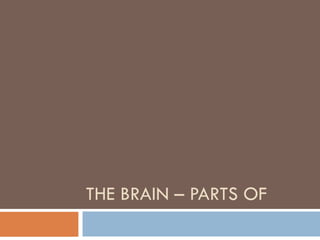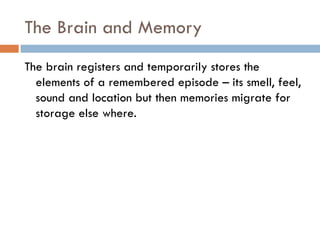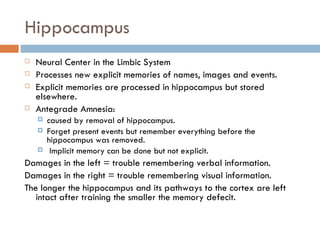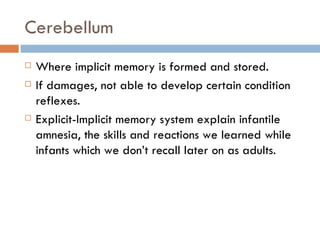The brain ¨C parts of
- 1. THE BRAIN ¨C PARTS OF
- 2. The Brain and Memory The brain registers and temporarily stores the elements of a remembered episode ¨C its smell, feel, sound and location but then memories migrate for storage else where.
- 3. Hippocampus Neural Center in the Limbic System Processes new explicit memories of names, images and events. Explicit memories are processed in hippocampus but stored elsewhere. Antegrade Amnesia: caused by removal of hippocampus. Forget present events but remember everything before the hippocampus was removed. Implicit memory can be done but not explicit. Damages in the left = trouble remembering verbal information. Damages in the right = trouble remembering visual information. The longer the hippocampus and its pathways to the cortex are left intact after training the smaller the memory defecit.
- 4. Cerebellum Where implicit memory is formed and stored. If damages, not able to develop certain condition reflexes. Explicit-Implicit memory system explain infantile amnesia, the skills and reactions we learned while infants which we don¡¯t recall later on as adults.



